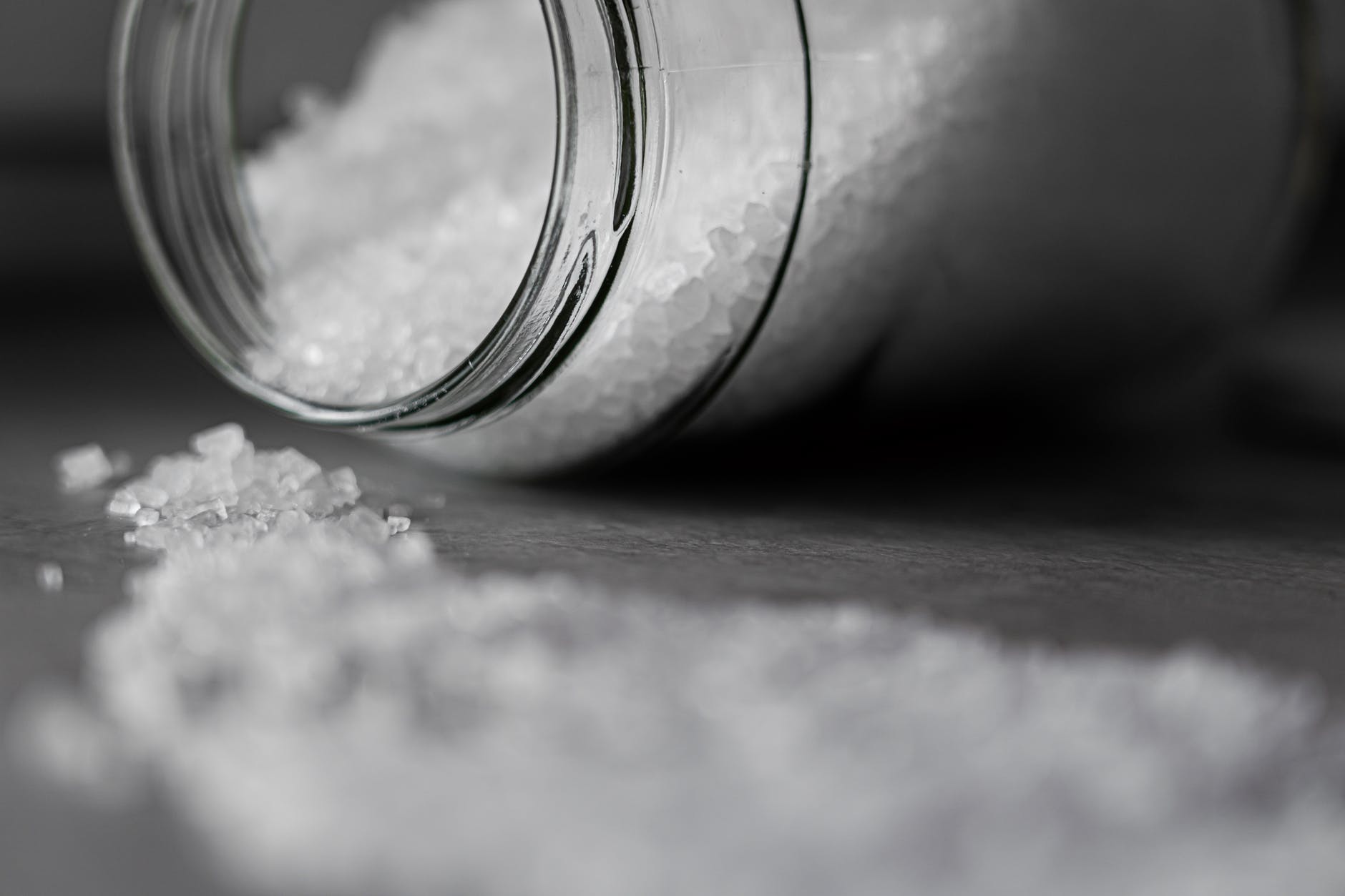Listen on Spotify.
Skipping lunch to get through more work is not going to have a significant positive impact on our productivity. Working longer hours does not guarantee that you will get more done, and doing so when we have unhealthy eating habits, can damage our productivity, and stop us from getting as much done as we’d like.
We all live busy, hectic lives. One consequence of this is the decline in our eating habits. For most of us, our diet is a secondary concern, and grabbing unhealthy snacks and microwave meals on the go has become commonplace.
Our poor relationship with food affects us in more ways than we might realise – and go beyond having a higher likelihood of developing heart disease or diabetes.
The food we consume is a key element that influences our energy levels, ability to focus, be creative, solve problems and be productive. Harmful eating habits like cutting out breakfast, not snacking, choosing unhealthy snacks, not drinking enough, and overeating during our lunch breaks can damage productivity.
In the rest of this article, we will explore how each of these eating habits may be killing our productivity and talk about other habits we should avoid if we want to complete as many tasks as possible during our day. Later, we’ll explore eating habits that may damage our productivity, from skipping breakfast when hungry to staying hydrated. First, though, let’s look at some foods which are likely to sabotage productivity.
Foods That Can Have a Detrimental Effect on Productivity
We all know that we are some foods we should avoid or eat less of if we want to lose weight and stay healthy, and there are also foods we should watch out for if we want to be productive and improve our chances of achieving what we want to in life. Here are the main culprits.
Saturated fat
Foods high in saturated fat reduce productivity. They can cause fatigue because the brain releases serotonin and tryptophan, which can both make us sleepy.
Saturated fats are found in animal-based foods, fatty meats, butter, cream, baked goods, fried dishes, cheese, and other whole-fat dairy products, all of which should be avoided to increase productivity. Almonds are a great alternative source of fat. They are a source of magnesium and protein that will give us energy throughout the day, allowing us to remain productive for longer.
Salt
One consequence of eating too much salt is becoming dehydrated, which can have a significant impact on productivity. Ditching the salty snacks is a wise move if we want to increase our productivity. It is worth paying attention to the amount of salt we eat during the day if we want to give our best performance at work.

Sugar
Despite the bad rep it has acquired over recent years, sugar is not the enemy. Sugar generates a source of energy that enables our muscles to function. It fuels the nervous system and brain. It aids in the metabolism of fat, and so is necessary for a healthy, balanced diet. As a backup energy source, it is stored as glycogen in the liver and muscles.
Fatigue, pale skin, sweating, anxiety, an erratic heartbeat, hunger, and irritability are all signs of low blood sugar. This can cause confusion, convulsions, blurred vision, and loss of consciousness if left untreated.
Nevertheless, sugar should make up no more than 10% of our daily calorie intake, if we are to avoid experiencing sugar highs and the resulting lows, as well as the associated mood swings that can damage productivity. The best thing to do is eat natural sugars found in starchy vegetables and fruits and restrict the consumption of unhealthy sugars found in refined and processed foods like cakes and biscuits.
Caffeine
Opinions on caffeine vary. It has been praised for helping increase productivity and condemned for damaging it. Caffeine in moderate amounts may help increase concentration and creativity. So, some caffeine is fine, but too much can cause heightened anxiety and impaired focus, both of which can hamper productivity.
Harmful Eating Habits to Avoid
Here’s a list of common habits it’s best to break if we want to become more productive versions of ourselves. Read on for suggestions on how to overcome each one.
Skipping breakfast (especially when hungry)
Research suggests that eating breakfast can boost activity in the brain and improve performance because it triggers the visual, frontal, and premotor cortex regions of the brain. However, the news isn’t all bad. A study conducted in 2013 found that adults who skipped breakfast as a matter of routine saw improved cognitive function. On the other hand, those of us who do eat breakfast would do well to plump for a high-fat option (avocado on toast, maybe?) as fats do the most to boost cognitive function.
While skipping breakfast won’t hurt if the body is used to it, it is unwise to forget about breakfast when hungry, as doing so can make us feel lethargic. When we have eaten our fill a hormone called leptin is produced which helps improve long-term memory by promoting neuroplasticity in the brain, specifically in the hippocampus, which improves our ability to learn and remember things.
Short on time?
- Prepare the night before, so that there is a quick nutritious breakfast ready to eat in the morning. Perhaps, prepare the ingredients for a smoothie or use leftovers from an evening meal.
- Include a healthy fat at breakfast, such as avocados, coconut or olive oil, or nuts to increase brain power.
Cutting out all snacks
This one may not seem like a bad habit at all, but here’s a surprise. Snacking can improve learning and memory provided we pick the right foods. Indulging in one low-sugar mid-morning snack and one mid-afternoon snack can help keep our energy levels constant throughout the day, which allows us to be consistently productive. An occasional sugary snack won’t do any harm either.
What snacks should we choose? Healthy options include:
- Hummus with pita bread.
- Apples.
- Nuts.
- Yoghurt.
Remember, having a little of what we fancy every now and again won’t hurt, either!
Next, let’s find out why drinking enough is vital if we want to become more efficient.
Not drinking enough
When over 2% of the body’s water is lost, we officially become dehydrated. Not drinking enough over the course of a day will impair our ability to focus, worsen our ability to learn, and reduce our powers of memory. It can also put us in a bad mood and make everything seem more difficult, and we have seen before how our mood can affect productivity.
To make sure we are staying hydrated during the day:
- Have soup for lunch every so often.
- Keep a bottle of water on the desk.
- Snack on fruits with a high water content, such as pineapple, melon, and tomatoes.
Snacking on sugary, unhealthy foods

In 2011, a study found that snacking on unhealthy foods was related to an increase in minor accidents at work. One reason for this may be that snacking on sugary junk foods produces a short burst of energy that can quickly wear off and leave us feeling sluggish and tired. This is far from ideal if we are trying to complete a complex or challenging task.
These energy swings occur because processed and refined foods don’t contain enough protein or fibre to release sugars slowly into the bloodstream and provide energy steadily throughout the day.
To avoid huge energy swings:
- Swap out the refined carbs for a mix of fruits, nuts and raisins, crackers and peanut butter, and yogurt. Cheese is a good option too.
- All these foods will release energy slowly to help us remain productive throughout the day.
Grabbing Junk Food in the Middle of the Day
Chowing down on junk food at lunch won’t make us more productive either. It may be causing more harm than we think. Eating too much sugary food and saturated fat has been linked to a less developed hippocampus. That is the area of the brain that plays a huge role in memory, learning, and spatial awareness. If we succumb to the temptation of junk food too often, we are likely to have less capacity to learn which will lead to reduced productivity. Eating junk food can also have a negative effect on our mood, which makes it harder to focus and work effectively.
To help resist the lure of junk food:
- Prepare a healthy lunch to enjoy at work, such as salads, wraps, or leftovers from dinner the night before.
- Search for restaurants close to work that serve healthy meals if that’s a feasible option.
Overeating
Eating too much, especially if we are feasting on high-calorie foods, is associated with experiencing more cravings, lower satisfaction, and having a more difficult time relaxing. The body doesn’t adjust properly to the increase in energy which creates mood swings that can affect concentration, and therefore productivity.
To avoid overeating:
- Exercise portion control. One way to do this is to prepare a homemade lunch to take to work.
- Eat salads more often as there is evidence that low-calorie foods like fruit and veg help us manage our energy better.
Never leaving the desk
Never leaving the desk, even to the point of eating lunch there, may seem a sure-fire way to increase efficiency, but it actually lowers productivity. Taking regular short breaks gives the brain a breather, which aids concentration and can help prevent burnout and the subsequent depression that can follow.
People who get out of the office during their lunch break tend to display more enthusiasm and be more relaxed. This improved mood helps such people perform better and be more efficient.
Don’t eat at the desk. Instead, we should:
- Do our best to let go of the anxiety and worry that is keeping us chained to our desks.
- Eat lunch elsewhere, and outside when possible.
- Walk around on our breaks to help our brains recharge.
Wrapping Up
We all tend to forget how much our eating habits can affect our performance. It’s all too easy to become fixated on getting things done. But if we do what we can to curb our unhealthy eating habits, we can become more productive and give ourselves the best chance of achieving success.
Remember, eating habits we need to break if we want to be more productive include:
Why not start keeping a food diary today, so that you can identify which unhealthy eating habits you are prey to? That way, you can start tackling them and will hopefully start to see an uptick in your productivity as a result. If we’ve missed an unhealthy eating habit that plagues you and damages your productivity, drop us a comment.
Good luck on your journey towards eating healthier and becoming more productive!


One thought on “Eating Habits to Break if We Want to Be Productive”